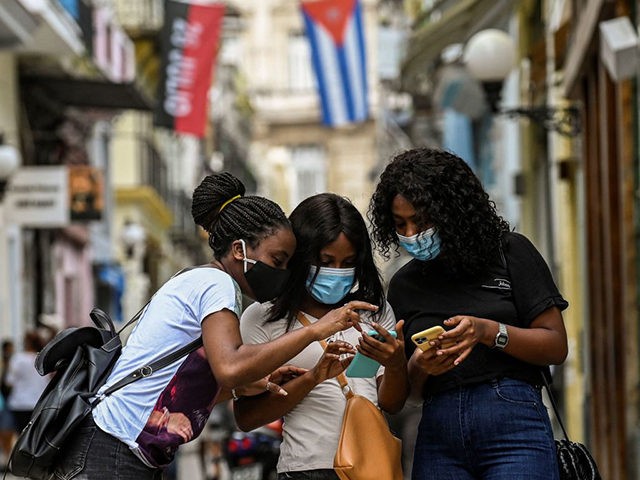Cuban human rights activists Andres Portillo and Denis Molina, creators of the Palsaco.com website for reporting oppressive actions by the Cuban government, on Thursday debuted a new Droid smartphone app called Estoypuesto (“I’m on!”) to help organize protests against the dictatorship.
Portillo and Molina hope their app will make it possible to “organize, view, and participate in calls” anonymously throughout Cuba. The system sends event dates, descriptions, and even GPS coordinates to users, who are then given a means of indicating they attended or supported a rally, without making themselves vulnerable to identification and reprisal by the oppressive Communist state.
The app interfaces with the established Palsaco.com website, where organizers can create events and post information that will be distributed through Estoypuesto to smartphones.
Estoypuesto is available as a free download from the Google Play store. The developers plan to release an iPhone version of the app if the Droid release is successful.
“It’s all about taking advantage of the tools that the 21st Century gives us, which our predecessors did not have,” Portillo said.
“We want the Cuban to be able to express his will for change not only in the streets, under the terror of the Cuban dictatorship, but also from his home, and to see that he is not alone, that there are others who are also standing next to him,” he said.
The name of the app was chosen in honor of imprisoned dissident Yoandi Montiel Hernandez, who made YouTube videos satirizing the Cuban regime under the name “El Gato de Cuba.” Hernandez was fond of beginning his videos by saying “Estoy Puesto!” The phrase became popular as a cheeky gesture of defiance against the regime after Hernandez’s arrest in April.
Organizing and communicating without drawing the attention of state security services is a concern of dissidents around the world. Many turn to encrypted messaging platforms such as Telegram for communications, but the Cuban regime blocked access to Telegram and similar services last week.

COMMENTS
Please let us know if you're having issues with commenting.